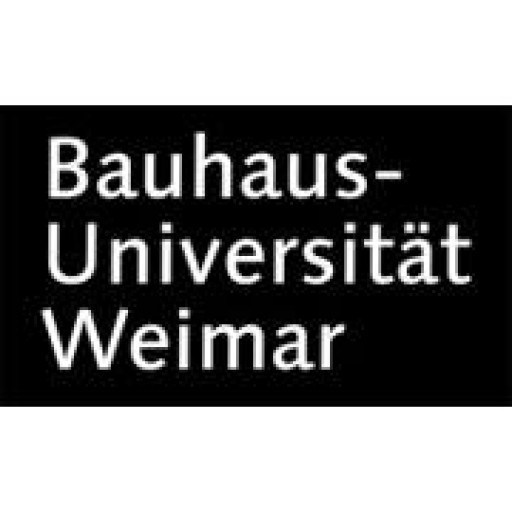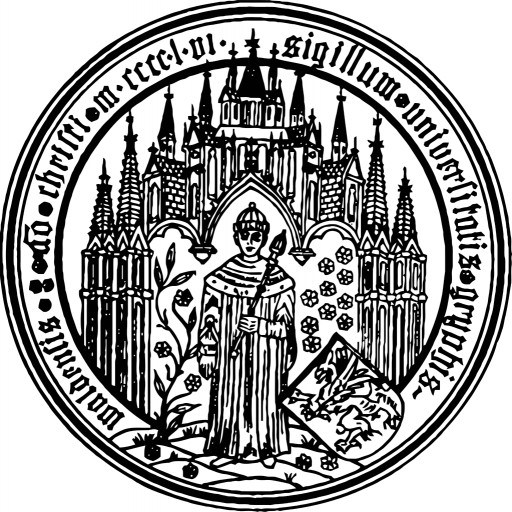Energy and Resource Efficiency is a forward-looking degree program offered by Beuth University of Applied Sciences that prepares students to meet the increasing demand for sustainable solutions in the fields of energy management, environmental protection, and resource conservation. This interdisciplinary program combines the fundamentals of engineering, environmental science, and economic principles to enable graduates to develop, implement, and optimize energy-efficient and resource-conscious projects across various industries. Throughout the coursework, students explore topics such as renewable energy technologies, energy systems analysis, sustainable building design, environmental legislation, and lifecycle assessment. The program emphasizes practical skills through project-based learning, internships, and collaborative research projects, ensuring that graduates are well-equipped to address real-world challenges in energy and resource efficiency. Additionally, students have opportunities to specialize in areas such as industrial energy management, renewable energy systems, or sustainable urban development, fostering expertise aligned with their career aspirations. Beuth University’s state-of-the-art laboratories and close ties with industry partners provide students with invaluable hands-on experience, preparing them for roles in consultancy, manufacturing, urban planning, and government agencies dedicated to sustainable development. Graduates of this program are capable of designing innovative solutions that reduce energy consumption and environmental impact, contributing to national and global efforts to combat climate change. The program’s blend of scientific knowledge, technical skills, and environmental awareness positions alumni as leaders and consultants in the transition towards a more sustainable and resource-efficient future. Studying Energy and Resource Efficiency at Beuth University opens pathways to meaningful careers dedicated to improving quality of life through advanced energy management and resource conservation strategies.
The Energy and Resource Efficiency master's program at Beuth University of Applied Sciences focuses on developing advanced expertise in sustainable energy management and resource conservation. This interdisciplinary program is designed to equip students with the technical skills, analytical abilities, and practical knowledge necessary to address the pressing challenges of energy consumption and environmental impact in various industries. Throughout the course, students will explore innovative methods for optimizing energy use, improving efficiency in building systems, and adopting renewable energy sources. The curriculum covers essential topics such as energy system analysis, renewable energy technologies, energy-efficient engineering, environmental impact assessment, and sustainable resource management.
Students will engage with cutting-edge research and participate in hands-on projects, laboratory work, and industry collaborations to gain real-world experience. The program emphasizes sustainability and environmental responsibility, preparing graduates to develop solutions that balance economic growth with ecological preservation. Graduates will be qualified to work in diverse sectors including energy production, manufacturing, building management, consulting, and policy-making institutions. The program also aims to foster cross-disciplinary thinking and innovation, encouraging students to implement sustainable practices and contribute to the transition toward a low-carbon economy.
In addition to technical training, the program offers modules on project management, regulatory frameworks, and communication skills, ensuring that graduates are well-prepared for leadership roles in their field. The master's program typically spans four semesters, including coursework, practical training, and the completion of a master’s thesis. Graduates will be equipped to develop, implement, and manage energy efficiency projects, conduct resource audits, and develop strategies for sustainable development. Overall, the Energy and Resource Efficiency program at Beuth University provides a comprehensive education for those committed to making a positive impact on energy usage and resource management in society.
Program requirements for the Master’s Degree in Energy and Resource Efficiency at Beuth University of Applied Sciences include a combination of academic prerequisites, language proficiency, and specific qualifications. Applicants are typically required to hold a bachelor's degree or an equivalent qualification in engineering, environmental sciences, mechanical engineering, or related fields that demonstrate foundational knowledge relevant to energy systems, resource management, and sustainability topics. The evaluation of applicants considers their undergraduate coursework, with emphasis on subjects such as renewable energy technologies, energy efficiency measures, environmental engineering, thermodynamics, and sustainable development.
Proficiency in English is mandatory, with accepted proof such as TOEFL or IELTS test scores, reflecting the international nature of the program. Candidates must demonstrate their ability to understand and communicate complex technical information in English, ensuring they can participate fully in lectures, seminars, and research activities. Prior experience or coursework in energy management, resource efficiency, or environmental policy can enhance an applicant’s profile but is not strictly compulsory.
Applicants are also expected to submit a compelling motivation letter outlining their interest in energy and resource efficiency, their career goals, and how the program aligns with their professional aspirations. Some programs may prefer candidates with practical experience or internships in relevant fields; hence, documentation of relevant work or project experience can support an application.
The selection process involves an assessment of academic records, language proficiency, and motivation, sometimes including interviews or additional testing. Successful applicants should demonstrate a strong technical background, motivation for sustainability-focused innovations, and readiness to contribute to advancing energy efficiency principles. It is advisable for applicants to review specific application deadlines and requirements posted by Beuth University each academic year.
The financing of the Energy and Resource Efficiency program at Beuth University of Applied Sciences is primarily structured through a combination of tuition fees, government support, and possible scholarships or financial aid options. As a public university in Germany, Beuth University generally offers relatively affordable tuition fees for domestic and European Union students, which are often supplemented by state funding and subsidies. For international students, tuition fees may vary and are often higher, although specific details for the Energy and Resource Efficiency program should be verified directly with the university’s admissions office.
Students are encouraged to explore federal and state scholarship opportunities, such as those offered by the German Academic Scholarship Foundation or Erasmus+ mobility grants, which can significantly offset study costs. Additionally, students might qualify for student loans or financial assistance programs designed to support higher education pursuits. Beuth University provides comprehensive guidance on financial planning and available funding sources through its student support services.
Part-time work opportunities are also commonly available for students to help finance their studies, especially within Berlin’s vibrant job market. The university’s location in a major European city offers students access to internships and cooperative education programs with industry partners, which not only enhance their practical experience but can also contribute to their financial stability during their studies.
Furthermore, some students may also consider funding programs from private foundations or industry sponsors interested in advancing research and development in energy efficiency and sustainability. It is important for prospective students to start early with their financial planning, apply for relevant scholarships and aid programs, and consult with the university’s financial aid office to ensure they are well-informed about all possible sources of funding.
Overall, the financing of the Energy and Resource Efficiency program combines university-specific support, external scholarships, government assistance, and personal funding strategies to ensure that students can complete their education with manageable financial obligations while focusing on their academic and professional development.
Energy and Resource Efficiency at Beuth University of Applied Sciences is a specialized program designed to equip students with the knowledge and skills necessary to promote sustainable development and optimize energy use across various industries. The curriculum emphasizes the principles of efficient energy consumption, renewable energy sources, resource management, and environmental protection. Students gain a comprehensive understanding of building technology, heating, ventilation, and air conditioning (HVAC) systems, as well as the integration of renewable energy technologies such as solar and wind power into existing infrastructure.
Throughout the course, students engage in practical projects and laboratory work that focus on the design, analysis, and optimization of energy systems. The program covers topics such as energy auditing, life cycle assessment, energy-efficient building design, and energy management systems. It aims to prepare graduates for careers in consulting, industry, and public administration, where they can implement sustainable solutions to reduce energy consumption and minimize environmental impact.
The coursework is complemented by seminars on current trends and innovations in energy technology, policy and regulation, and sustainable resource utilization. Additionally, students have opportunities for internships and industry collaborations, enabling them to gain real-world experience and establish professional networks within the sector. The program ultimately seeks to foster a new generation of engineers and specialists committed to advancing energy efficiency and resource conservation practices globally.
Graduates of the program are well-positioned to work in areas including energy consulting, building retrofit, renewable energy project development, and environmental planning. The program also aligns with national and international sustainability goals, preparing students to contribute meaningfully to the transition towards a more sustainable and energy-efficient future. The program's teaching approach combines theoretical foundation with practical application, ensuring students leave with both knowledge and hands-on expertise.









